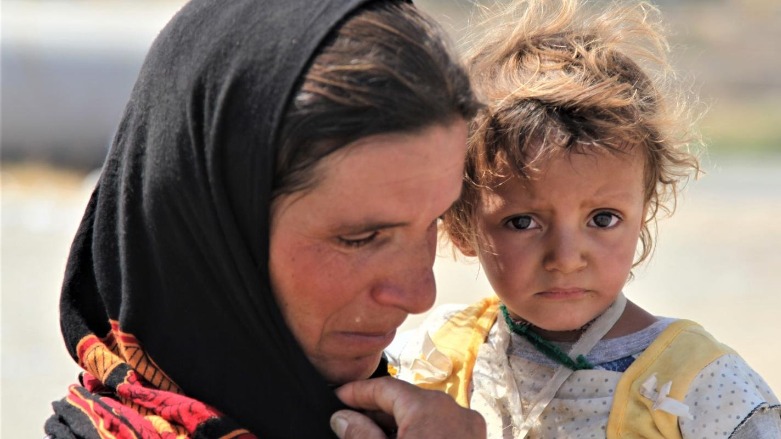USCIRF report underlines Sinjar Agreement remains unimplemented

ERBIL (Kurdistan 24) – A new report of the official US Commission on International Religious Freedom (USCIRF) published on Tuesday said that 200,000 displaced Yezidi (Ezidi) survivors of the ISIS genocide in Sinjar still languish in displacement camps in Duhok and the Sinjar Agreement remains unimplemented.
"Four years after the defeat of ISIS, most of the over 200,000 displaced Yazidi survivors of the ISIS genocide in northern Iraq still languish in IDP camps in Duhok, with about 80,000 having migrated abroad," the report said.
"Moreover, in June 2021, almost 1,400 Yazidis were temporarily left homeless after a fire destroyed sections of the Sharya IDP camp, adding a new trauma for the community. The whereabouts of nearly 3,000 abducted Yazidi women and girls also remain unknown," it added.
"The Yazidis' historic homeland of Sinjar remains mostly empty with only about 170,000 having returned to Sinjar and the Nineveh Plains due to multiple factors including political tensions; a plethora of armed groups such as PMF-affiliated (Popular Mobilization Forces) militias; minimal restoration of infrastructure and basic services; and limited economic opportunities," it continued.
Read More: President Masoud Barzani discusses religious coexistence in Kurdistan Region with USCIRF Chair
The report also said unresolved border disputes between the KRG (Kurdistan Regional Government) and the Iraqi Federal Government negatively impacted security in northern Iraq.
In October 2020, Iraq and the Kurdistan Regional Government (KRG) announced they had reached an agreement, with support from the UN, to restore and normalize the situation in Shingal, where competing armed groups are active.
Read More: KRG and Baghdad reach administrative, security agreement on Sinjar
The agreement includes a framework to withdraw all armed groups from the area, restore the local administration, and appoint a new mayor.
"Although the two parties reached the Sinjar Security Agreement in October 2020, which aimed to reduce KRG-IFG tensions and provide security and protection for the Yazidi community, its implementation has so far failed," the USCIRF report said.
"The agreement called on the two parties to work together to appoint an independent mayor to Sinjar, but this appointment has not yet occurred," it added. "In terms of security, the agreement mandated the deportation of all militia groups from the city of Sinjar and the transfer of security responsibility to the local police."
"However, the two parties have also not implemented this provision. As a result, religious minorities, specifically Yazidis, continue to fear an opportunity for ISIS to reemerge in areas with significant minority populations," the report concluded.
Moreover, the report said that Yezidi's leaders felt excluded from the agreement and have sought meaningful inclusion in its implementation.
Read More: Turkish airstrikes target suspected PKK positions in Iraq's disputed Makhmour, Sinjar
The report also added that religious and ethnic minority communities in northern Iraq "are disproportionately impacted because of Turkish airstrikes targeting the Sinjar Resistance Units (YBS), Yezidi security forces aligned with the Kurdistan Workers' Party (PKK)."
